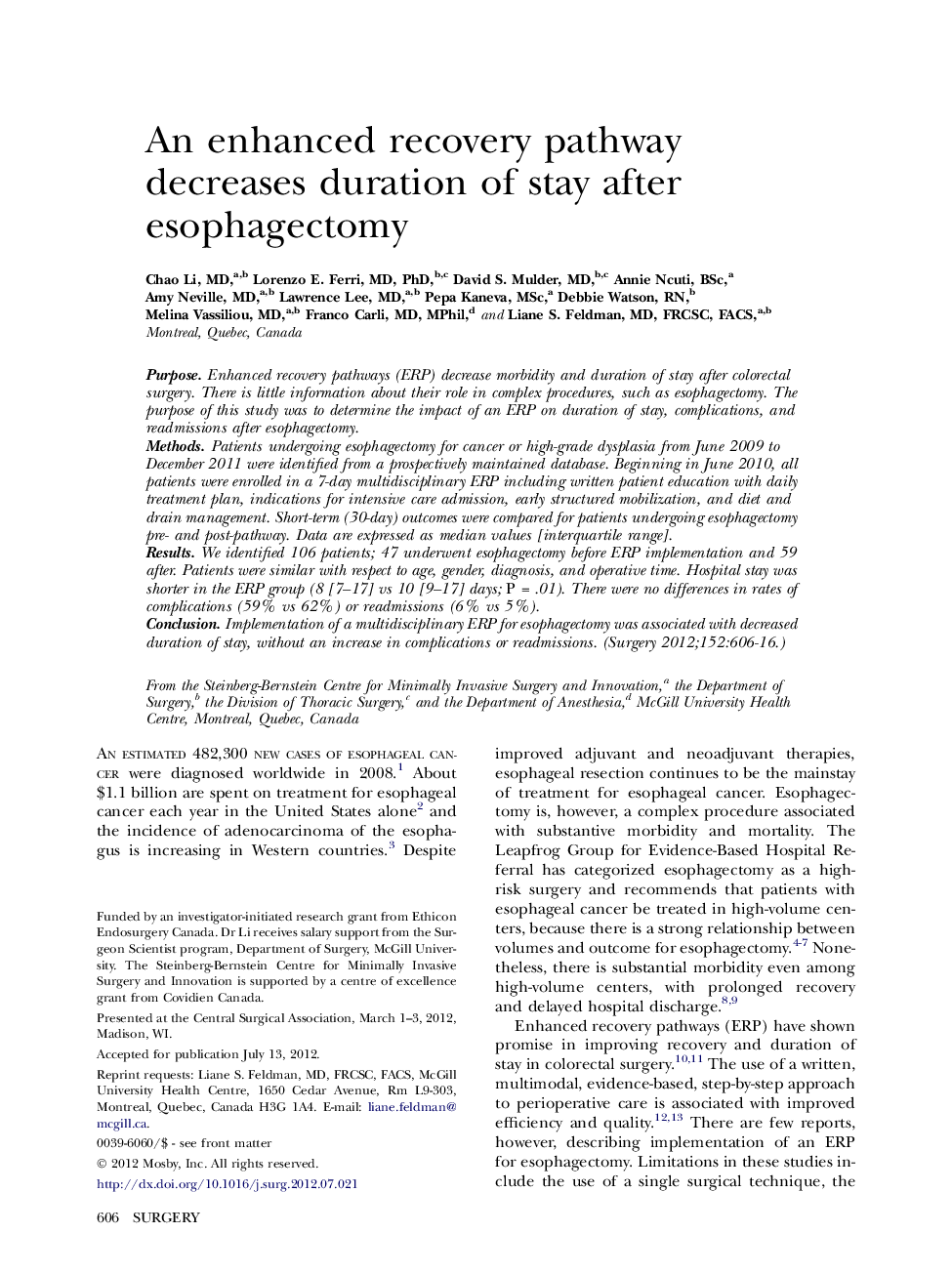| Article ID | Journal | Published Year | Pages | File Type |
|---|---|---|---|---|
| 4307827 | Surgery | 2012 | 11 Pages |
PurposeEnhanced recovery pathways (ERP) decrease morbidity and duration of stay after colorectal surgery. There is little information about their role in complex procedures, such as esophagectomy. The purpose of this study was to determine the impact of an ERP on duration of stay, complications, and readmissions after esophagectomy.MethodsPatients undergoing esophagectomy for cancer or high-grade dysplasia from June 2009 to December 2011 were identified from a prospectively maintained database. Beginning in June 2010, all patients were enrolled in a 7-day multidisciplinary ERP including written patient education with daily treatment plan, indications for intensive care admission, early structured mobilization, and diet and drain management. Short-term (30-day) outcomes were compared for patients undergoing esophagectomy pre- and post-pathway. Data are expressed as median values [interquartile range].ResultsWe identified 106 patients; 47 underwent esophagectomy before ERP implementation and 59 after. Patients were similar with respect to age, gender, diagnosis, and operative time. Hospital stay was shorter in the ERP group (8 [7–17] vs 10 [9–17] days; P = .01). There were no differences in rates of complications (59% vs 62%) or readmissions (6% vs 5%).ConclusionImplementation of a multidisciplinary ERP for esophagectomy was associated with decreased duration of stay, without an increase in complications or readmissions.
